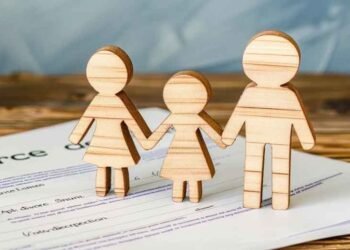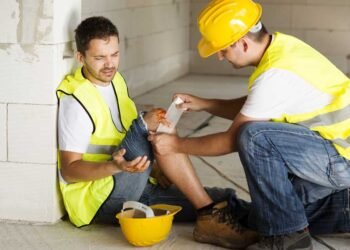Premises liability is a legal concept used in personal injury cases where the injury was caused by some type of unsafe or defective condition on someone’s property. All property owners, whether they are homeowners, businesses, or even governmental entities, have the duty to maintain a safe environment for individuals on their premises. If a property owner neglects this responsibility and someone gets injured as a result, the injured person may have the right to pursue a claim for damages, which often involves consulting with a premises liability lawyer.
Such lawyers specialize in cases where accidents occur due to various hazards such as wet floors, poor construction, defective lighting, or a lack of security. The success of these cases usually hinges on proving that the property owner knew, or should have known, about the dangerous condition and failed to correct it in a reasonable amount of time. This may involve gathering evidence, such as maintenance records, surveillance footage, or witness testimonies, to build a persuasive argument that the property owner’s negligence led to the injury.
The specifics of premises liability can differ depending on local laws and the type of property where the injury occurred. It is the responsibility of a premises liability lawyer to navigate the complexities of these laws and advise their clients on the merits of their case. Victims of premises-related injuries should consider consulting with such a lawyer to understand their rights and the potential for compensation.
Understanding Premises Liability
Premises liability pertains to the responsibilities of property owners regarding accidents and injuries on their property. This section outlines the fundamental aspects, including the definition, legal concepts, and the role of attorneys in this field.
Definition and Scope
Premises liability is a legal concept addressing the responsibility of property owners to maintain a safe environment for guests and patrons. Under this facet of law, if a person is injured due to the owner’s neglect, they may be held legally liable for damages. The scope of premises liability encompasses various types of properties, including:
- Residential homes
- Retail stores
- Office buildings
- Public parks
- Other types of property
Property Owners’ Obligations:
- Maintain safe premises
- Warn of hazards
- Repair known dangers
Key Legal Concepts
Several core legal concepts are integral to understanding premises liability. They define when and how a property owner may be considered liable.
- Duty of Care: Property owners have an obligation to ensure the safety of their premises for lawful visitors.
- Breach of Duty: Failing to uphold the duty of care, such as neglecting necessary repairs or failing to warn visitors of potential dangers.
- Causation: The injury must be directly caused by the breach of duty.
- Damages: There must be quantifiable harm that has occurred as a result of the breach.
Visitors are categorized under:
- Invitees: Individuals invited onto the property for business purposes, afforded the highest duty of care.
- Licensees: Individuals permitted on the property for non-business interactions.
- Trespassers: Individuals without permission to be on the property, owed the least duty of care.
The Role of the Premises Liability Lawyer
A premises liability lawyer specializes in cases where an individual has sustained injuries on someone else’s property due to negligence. Their role involves several crucial tasks:
- Case Evaluation: Assessing the strength of a claim and determining the applicable laws.
- Evidence Collection**: Gathering the necessary proof to establish negligence, often including photographs, witness statements, and expert testimonies.
- Representation: Advocating for the client’s rights and interests throughout the legal process, negotiations, and court proceedings, if necessary.
Primary Responsibilities:
| Task | Description |
| Legal Advice | Guide clients on the viability of their claims and the legal process. |
| Documentation | File court documents, such as complaints and motions. |
| Negotiation | Seek fair settlements with property owners or insurance companies. |
| Litigation | Represent clients effectively in court, arguing their case before a judge and jury. |
A premises liability lawyer serves a pivotal role in ensuring that injured parties receive just compensation for their losses and that property owners uphold their legal obligations.
Cases and Legal Procedures
This section elucidates upon the intricate facets of cases and legal procedures in premises liability, detailing the common types, methodological steps in litigation, and the strategies employed for assessing evidence and determining liability.
Common Types of Premises Liability Cases
Premises liability cases typically manifest in various forms, with some of the most prevalent being:
- Slip and Fall Accidents: Occur when an individual slips, trips, or falls due to a hazardous condition on the property.
- Inadequate Maintenance: Pertains to accidents caused by the failure to properly maintain the premises.
- Defective Conditions: Involves incidents arising from structural defects or building code violations.
- Inadequate Security: Relates to injuries resulting from criminal acts that could have been prevented with proper security measures.
- Swimming Pool Accidents: Often involve drownings or injuries due to the property owner’s negligence.
Steps in a Premises Liability Case
The typical progression of a premises liability case constitutes several critical steps:
- Incident Documentation: Immediate documentation of the incident, including photos, witness statements, and an official report.
- Hiring a Premises Liability Lawyer: The injured party consults and retains a lawyer experienced in premises liability to navigate the legal process.
- Case Filing: The lawyer files a complaint outlining the plaintiff’s injuries and the defendant’s alleged negligence.
- Discovery: Both parties exchange evidence, conduct depositions, and assess all pertinent information.
- Negotiation: Efforts are made to reach a settlement before proceeding to trial.
- Trial: If negotiations are unsuccessful, the case goes to trial where a judge or jury renders a verdict.
Evidence and Liability Assessment
Assessing evidence and determining liability are paramount in premises liability cases. A premises liability lawyer will meticulously evaluate:
- The nature and extent of the injury.
- The condition of the premises at the time of the accident.
- Whether the property owner knew or should have known about the hazard.
- Whether the injured party was lawfully on the premises.
Witness testimonies, maintenance records, and surveillance footage often serve as critical evidence. In determining liability, the court considers the defendant’s duty of care, breach of that duty, causation, and damages.












